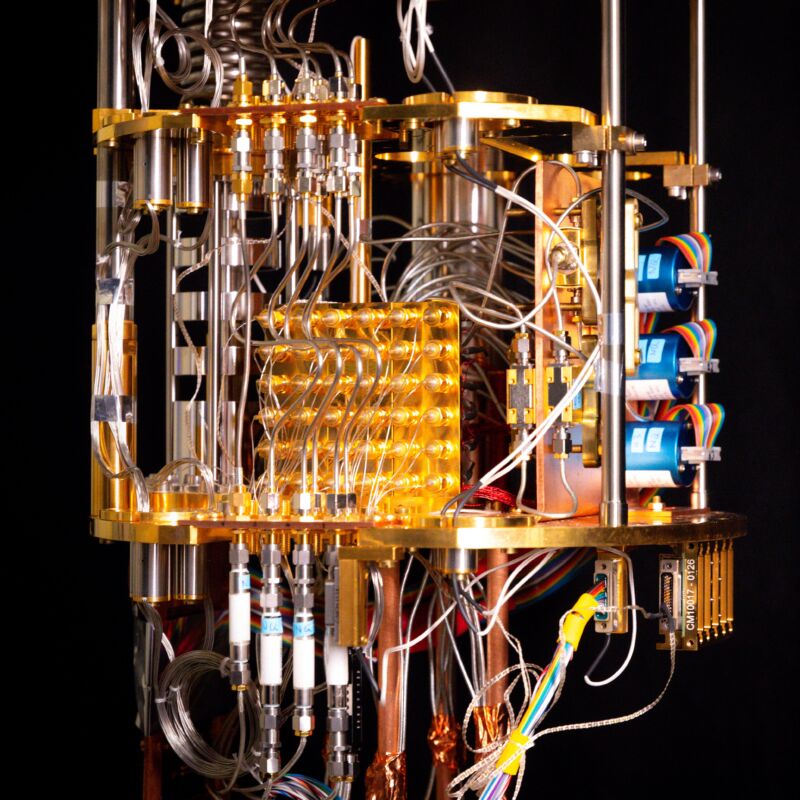
Enlarge (credit: Nord Quantique)
There's a general consensus that performing any sort of complex algorithm on quantum hardware will have to wait for the arrival of error-corrected qubits. Individual qubits are too error-prone to be trusted for complex calculations, so quantum information will need to be distributed across multiple qubits, allowing monitoring for errors and intervention when they occur.
But most ways of making these "logical qubits" needed for error correction require anywhere from dozens to over a hundred individual hardware qubits. This means we'll need anywhere from tens of thousands to millions of hardware qubits to do calculations. Existing hardware has only cleared the 1,000-qubit mark within the last month, so that future appears to be several years off at best.
But on Thursday, a company called Nord Quantique announced that it had demonstrated error correction using a single qubit with a distinct hardware design. While this has the potential to greatly reduce the number of hardware qubits needed for useful error correction, the demonstration involved a single qubit—the company doesn't even expect to demonstrate operations on pairs of qubits until later this year.
Read 13 remaining paragraphs | Comments
Ars Technica - All contentContinue reading/original-link]




